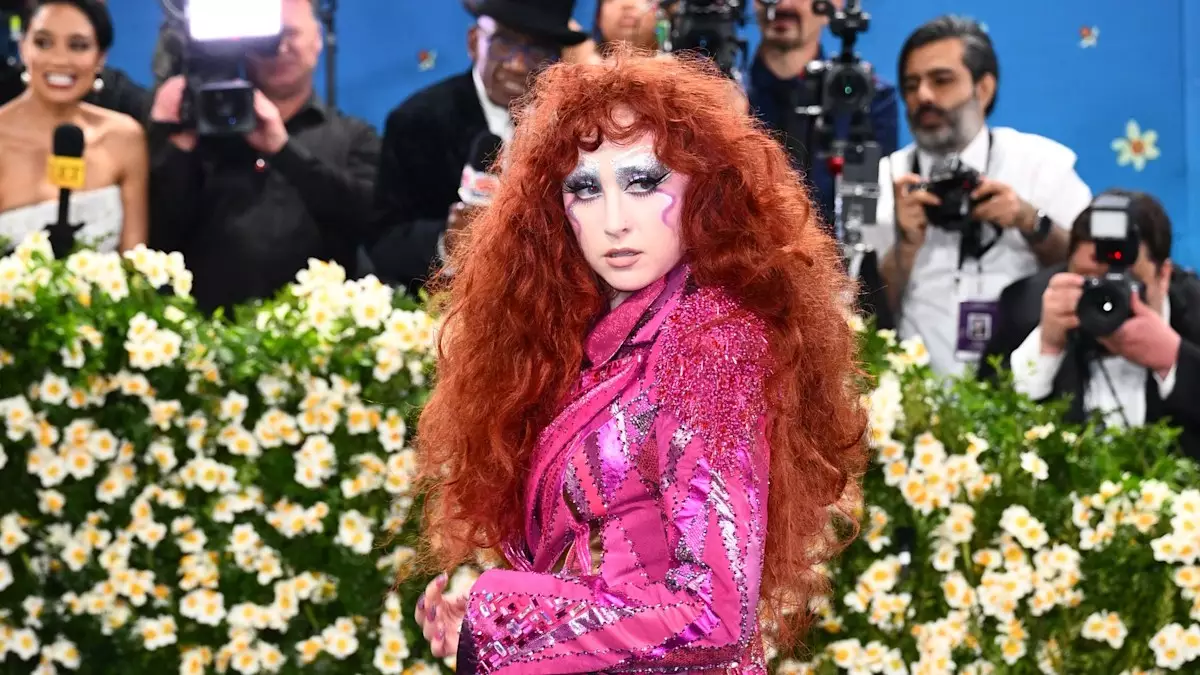Chappell Roan’s rise to fame has been nothing short of meteoric. Within months, she transformed from an indie artist performing in local venues to selling out major music festivals across the United States. The singer, who originally hails from a small town in southern Missouri, has captured the attention of music lovers with her unique blend of pop and theatricality. Her debut album, *The Rise and Fall of a Midwest Princess*, propels her further into the limelight, a testament to her talent and determination. Yet, what sets Chappell apart is not just her musical prowess but her unwavering commitment to personal boundaries amidst the swirling chaos of newfound fame.
Fame’s Double-Edged Sword
As she candidly expressed in her interview on the Outlaws podcast, the pressure of continuous scrutiny and unsolicited attention can be overwhelming. Fame, while alluring, comes with its own set of challenges that can quickly tarnish the glittering facade. Chappell’s declaration of entering a ‘villain era’ underscores a critical turning point in her journey. Acknowledging that she may exit the music industry altogether if her boundaries are not respected, she exposes a raw, vulnerable side many celebrities often conceal. This reinforces a compelling narrative about empowerment and the importance of self-advocacy in an industry rife with exploitation.
The Personal Price of Fame
Chappell is more than just a pop sensation; she is a beacon of self-love and resilience in the face of adversity. Her experiences with invasive fans and disrespectful industry practices have taken a toll on her mental health, emphasizing the need for systemic change. Her refusal to tolerate inappropriate behavior, whether from fans or industry insiders, is a central theme in her narrative. By vocalizing her discomfort and refusing to remain silent, Chappell advocates for respect and consent—principles that are often overlooked in the heady rush of fame.
The high-pressure environment of the music industry can be damaging, particularly for artists who are expected to maintain a flawless image. Chappell’s courageous decision to stand firm against disrespect illustrates a growing trend among artists who prioritize their mental well-being and personal safety over industry norms. Her authenticity resonates with a generation of fans who yearn for realness in a world dominated by curated personas.
Fierce Advocacy for Change
Beyond her musical talents, Chappell is a strong advocate for mental health, LGBTQ+ rights, and the importance of consent. Her choice to decline an invitation to Pride celebrations at the White House reflects her disapproval of current governmental practices, illuminating a broader political landscape where artists feel compelled to make moral choices. In an environment that often prioritizes fame over integrity, her decision sends a powerful message about using one’s platform for the greater good.
Chappell’s commitment to advocacy doesn’t just end with her strings of social media posts; it’s woven into the very fabric of her artistry. With her latest single, *The Giver*, she continues to showcase her fearlessness as she explores intimate themes that resonate deeply with her audience. The song, which touches on lesbian relationships, emphasizes her dedication to representing diverse narratives in pop music, challenging the status quo with each lyric.
The Future: A Delicate Balance
As Chappell navigates the complexities of the music industry, her path is quite clear—prioritize personal autonomy and mental wellness, even if that means walking away from the spotlight. Her audacity to evoke a ‘villain era’ isn’t just a personal branding strategy; it’s a necessary evolution in a culture that often overlooks the voices of those at the forefront. The interplay between her artistic expression and her insistence on boundaries sets a new template for aspiring musicians, positioning her as a role model for those seeking to balance ambition with self-care and respect.
Chappell Roan’s story is one of empowerment, rewriting the narrative surrounding fame and personal boundaries in the entertainment industry. Rather than being a passive participant in her journey, she actively shapes the discourse, inviting her fans and peers to reconsider what it means to respect artists as individuals with real feelings and needs. As she continues to challenge societal expectations, one thing remains certain: Chappell Roan is here to stay, on her own terms.

